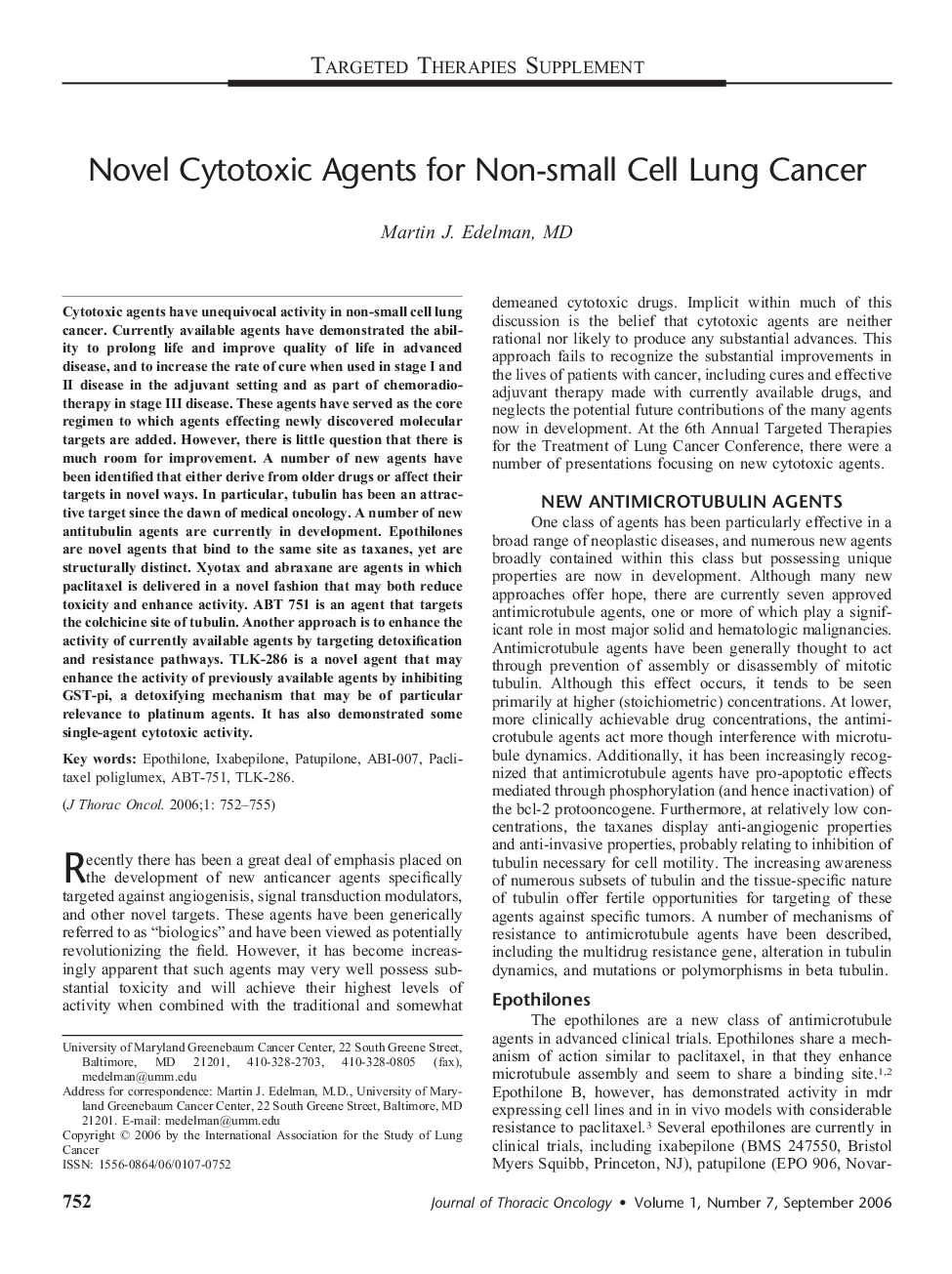| Article ID | Journal | Published Year | Pages | File Type |
|---|---|---|---|---|
| 3992913 | Journal of Thoracic Oncology | 2006 | 4 Pages |
Cytotoxic agents have unequivocal activity in non-small cell lung cancer. Currently available agents have demonstrated the ability to prolong life and improve quality of life in advanced disease, and to increase the rate of cure when used in stage I and II disease in the adjuvant setting and as part of chemoradiotherapy in stage III disease. These agents have served as the core regimen to which agents effecting newly discovered molecular targets are added. However, there is little question that there is much room for improvement. A number of new agents have been identified that either derive from older drugs or affect their targets in novel ways. In particular, tubulin has been an attractive target since the dawn of medical oncology. A number of new antitubulin agents are currently in development. Epothilones are novel agents that bind to the same site as taxanes, yet are structurally distinct. Xyotax and abraxane are agents in which paclitaxel is delivered in a novel fashion that may both reduce toxicity and enhance activity. ABT 751 is an agent that targets the colchicine site of tubulin. Another approach is to enhance the activity of currently available agents by targeting detoxification and resistance pathways. TLK-286 is a novel agent that may enhance the activity of previously available agents by inhibiting GST-pi, a detoxifying mechanism that may be of particular relevance to platinum agents. It has also demonstrated some single-agent cytotoxic activity.
